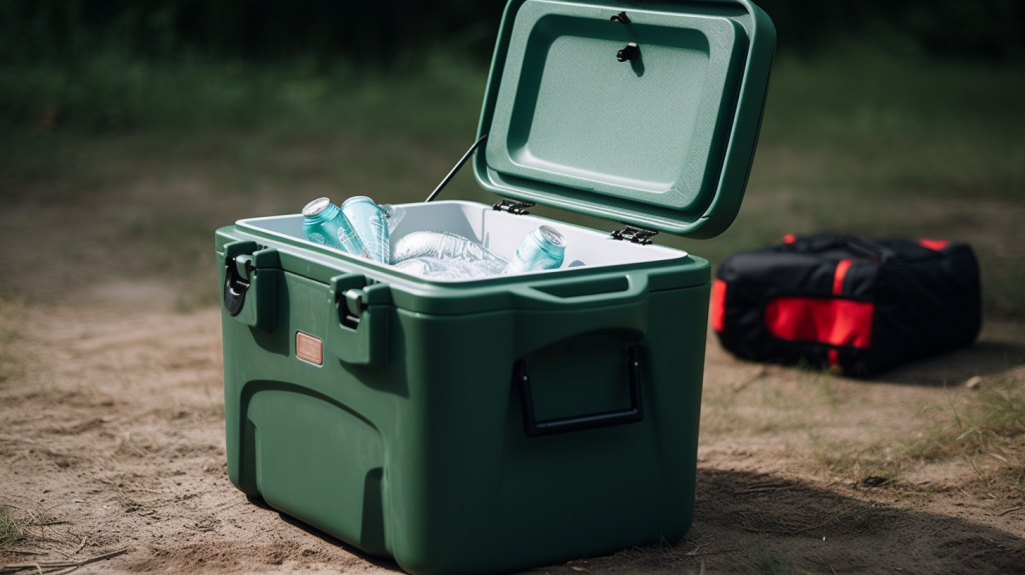Keeping food refrigerated while camping can be a bit challenging since you don’t have access to a traditional refrigerator. However, there are several methods you can use to keep your food cold and safe to eat during your camping trip:
- Coolers: Invest in a good quality cooler that’s well-insulated and has a good seal. Use block ice or ice packs rather than crushed ice, as they melt slower. Place perishable items in sealed containers or Ziploc bags to prevent water contamination from melting ice.
- Pre-Chilling: Refrigerate or freeze your food before you go camping. This will help lower the temperature inside the cooler initially, and the frozen items can act as extra ice packs.
- Ice Packs and Dry Ice: Ice packs are designed to stay colder for longer periods compared to regular ice. Dry ice is even colder but requires careful handling (it emits carbon dioxide gas as it melts, so ensure proper ventilation). Use gloves or a cloth to handle dry ice to avoid direct skin contact.
- Layering: Organize your cooler with a layer of ice packs or frozen items at the bottom, followed by a layer of food, and then another layer of ice packs on top. This helps keep the cold air circulating around the food.
- Separation: Keep raw meat, poultry, and seafood in sealed containers to prevent cross-contamination with other food items. Place them in a separate cooler if possible.
- Minimize Opening: Limit opening the cooler as much as possible. Every time you open it, cold air escapes and warm air enters, which accelerates ice melt.
- Shade and Insulation: Keep the cooler in the shade, away from direct sunlight. You can also insulate the cooler by placing it under a blanket or using insulating materials around it.
- Elevation and Temperature: If you’re camping in a cooler climate or at higher elevations, you might find that your food stays colder longer.
- Eating Order: Plan your meals so that you eat the most perishable items first. This way, you won’t risk consuming food that has been at warmer temperatures for too long.
- Replenishing Ice: If you’re camping for an extended period, consider bringing extra ice packs or ice from a nearby store if possible.
- Keep Cooler Closed Overnight: If you’re camping for multiple days, it might be a good idea to store your cooler in your vehicle at night (assuming the temperature inside your vehicle is cooler than outside) to further preserve the cold temperature.
- Follow Food Safety Guidelines: Remember to follow proper food safety guidelines to prevent foodborne illnesses. When in doubt, it’s better to discard food that might have been compromised.
Remember that the effectiveness of these methods can vary based on factors like the quality of your cooler, ambient temperature, and the type of ice packs you use. It’s a good idea to do a trial run at home to see how long your chosen method keeps your food cold before heading out on your camping trip.

